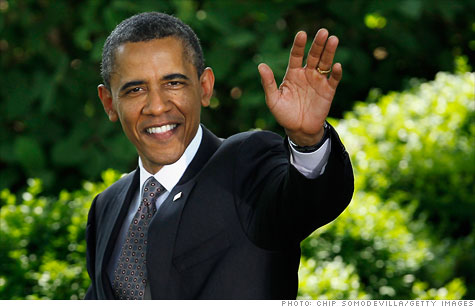Search News

The White House is said to be considering changes to federal worker pension plans.
NEW YORK (CNNMoney) -- Already enduring a two-year pay freeze, federal workers are once again in the crosshairs of a plan designed to cut government spending.
This time, their retirement packages are on the line.
At least one union has held discussions in recent days with officials from the White House, the Office of Management and Budget and Office of Personnel Management about changes to pensions.
At issue: A debt ceiling deal that could sharply increase the amount federal workers are expected to contribute to their own retirement packages.
For government workers, the prospect of additional cuts come at a time when they're already feeling picked on. Late last year, President Obama requested, and Congress approved, a two-year pay freeze for federal workers.
"I did not reach this decision easily. This is not a line item on a federal ledger; these are people's lives," Obama said at the time.
The prospect of seeing their compensation whacked twice in a year has the unions seeing red.
"Instead of making any serious effort to address the deficit, Washington politicians have decided to take a second drink at the federal employees' well," said William Dougan, president of the 110,000-member National Federation of Federal Employees, which said it has met with the administration.
The two-year pay freeze was considered a preemptive strike against the burgeoning federal deficit and was carried out by the White House.
Now Vice President Joe Biden is working with lawmakers from both parties on a deal to raise the debt ceiling and cut spending at the same time.
While the nitty-gritty details being discussed by Biden's group have not been made public, proposals have been floating around Washington for months.
Last December, the president's fiscal commission described federal and military pensions as "out of line" with private sector benefit packages, and recommended changes that would save $70 billion over 10 years.
For example, it proposed changing the formula for how pensions are calculated. The panel also suggested cutting back on cost of living adjustments for current retirees.
But the bulk of the savings under the commission's plan -- $51 billion through 2020 -- would be achieved by asking employees to kick in more to fund their pension plans.
Complicating matters for federal workers and their unions is the fact that key players on both sides of the aisle think their compensation is overly generous.
Third Way, a Democratic think tank, said in a policy paper that federal employees "enjoy one of the most generous retirement plans in the country."
Workers hired after 1986 contribute only $1 toward their pension for every $14 kicked in by the government, according to Third Way. And those workers also can collect Social Security benefits and contribute to a 401k-style plan with an employer match.
At the same time, Third Way says the plans are not "opulent," just more generous than what other middle-class families collect in the private sector.
In March, Senate Republicans Richard Burr and Tom Coburn introduced legislation that would entirely eliminate pensions for government employees. They would still collect Social Security and hold 401k-style accounts.
The White House is unlikely to back such an aggressive plan, but may be more amenable to a proposal that shifted more of the burden to workers.
The administration did not respond to requests for comment.
But a plan that forced workers to contribute more would mean a de-facto pay cut -- a prospect Dougan said he would fight.
"Federal workers have already accepted a serious pay reduction. Where does it stop?" he asked. ![]()
| Latest Report | Next Update |
|---|---|
| Home prices | Aug 28 |
| Consumer confidence | Aug 28 |
| GDP | Aug 29 |
| Manufacturing (ISM) | Sept 4 |
| Jobs | Sept 7 |
| Inflation (CPI) | Sept 14 |
| Retail sales | Sept 14 |